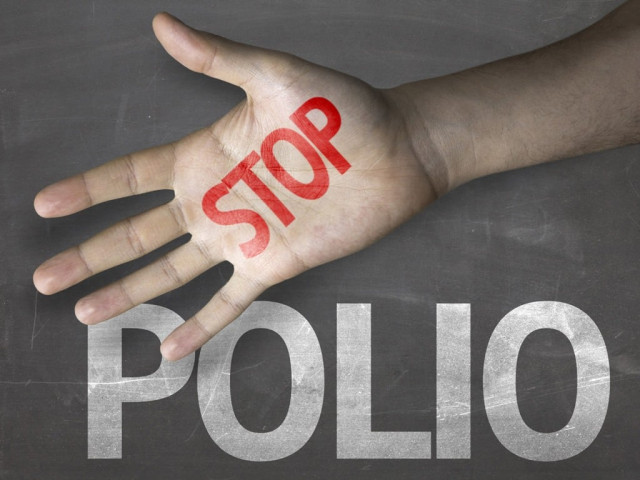A crippling disease: Seventh polio case reported
Another man dies because of naegleria taking the total death toll to three.

A new polio case was confirmed in Karachi on Friday taking the total number of cases in the country this year to 84.
The case was reported from Gulshan-e-Bunner, Landhi, one of the city's high-risk areas. So far seven cases have been reported from the city.
According to the health officials, the samples of one-year-old Murad, son of Nisar Ahmed, which were sent to the National Institute of Health in Islamabad for testing came back positive.
"The child's right leg is paralysed," said Dr Mazhar Khamisani of the Extended Programme on Immunisation while confirming the case. "The child has not been given a single dose of the vaccine."
While speaking to The Express Tribune, Dr Khamisani said that the family had refused to vaccinate the child. He added that the case was reported from one of the high-risk areas and was the first from Gulshan-e-Bunner.
Another official claimed that polio workers had restricted movement in the area. He claimed that even the police did not go in the area so why would the polio workers risk their lives. One of the polio workers who have worked in the area told The Express Tribune that they had been 'directed' not to visit homes in the vicinity during polio campaigns. He added that it was impossible for a polio worker to work in the area if law enforcers avoided it themselves.
The last polio case reported in Sindh was two-year-old Malala, daughter of Nazir Hussain. The family, hailing from the tribal areas, is settled in SITE Town, which is one of the most-sensitive areas declared by the authorities. It has yet to be confirmed whether the girl had ever taken polio drops.
Naegleria
A man identified as 32-year-old Muhammad Adnan lost his life to Naegleria Fowleri, a parasitic amoeba, on Friday. The authorities have yet to confirm how he got affected by the disease.
Adnan was a rickshaw driver and a resident of Nasir Colony, Korangi. He died at a private hospital while undergoing treatment on June 22 but health officials were notified on Friday.
"We are trying to gather the deceased's medical history," said Karachi EDO Dr Zafar Ejaz. "We are not sure if he went swimming or if he was performing the wuzu when the contaminated water went up his nose."
Two young boys from Gulistan-e-Jauhar have already lost their lives to naeglaria. The provincial authorities, including the health department, local government department and Karachi Water and Sewerage Board (KWSB) formed a committee soon after the first deaths in last month.
The process of taking water samples from different areas of the city has also been conducted. The officials are also trying to maintain the required quantity of chlorine in water everywhere - this includes drinking water.
"Chlorine is the only way to address the issue," stressed Dr Ejaz, adding the problem exists in different parts of the city.
According to health experts, naegleria is usually at peak from July to September in big bodies of water.
During his visit to the KWSB's chemical oxygen and demand plant on June 13, Sindh Health Minister Dr Sagheer Ahmed directed officials to maintain the required level of chlorine at all water supply points. He also directed officials to get random water samples from 18 towns of the city.
Published in The Express Tribune, June 28th, 2014.



















COMMENTS
Comments are moderated and generally will be posted if they are on-topic and not abusive.
For more information, please see our Comments FAQ